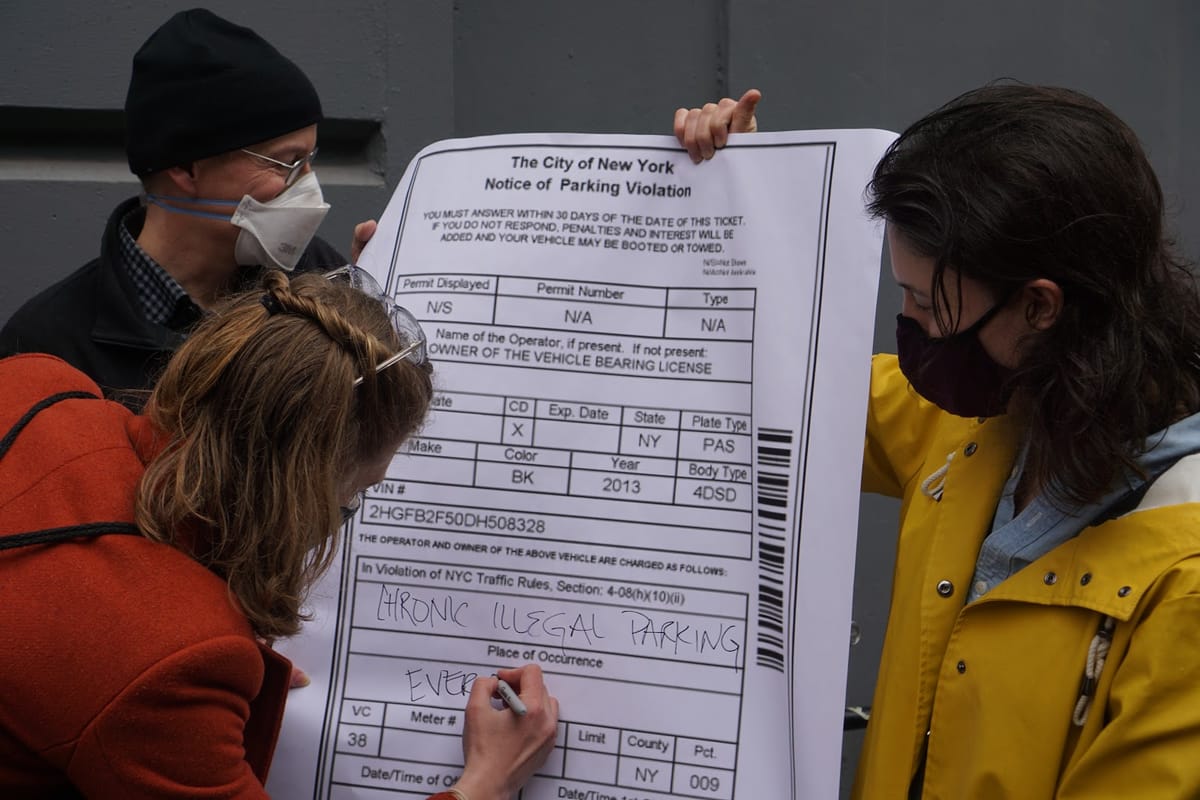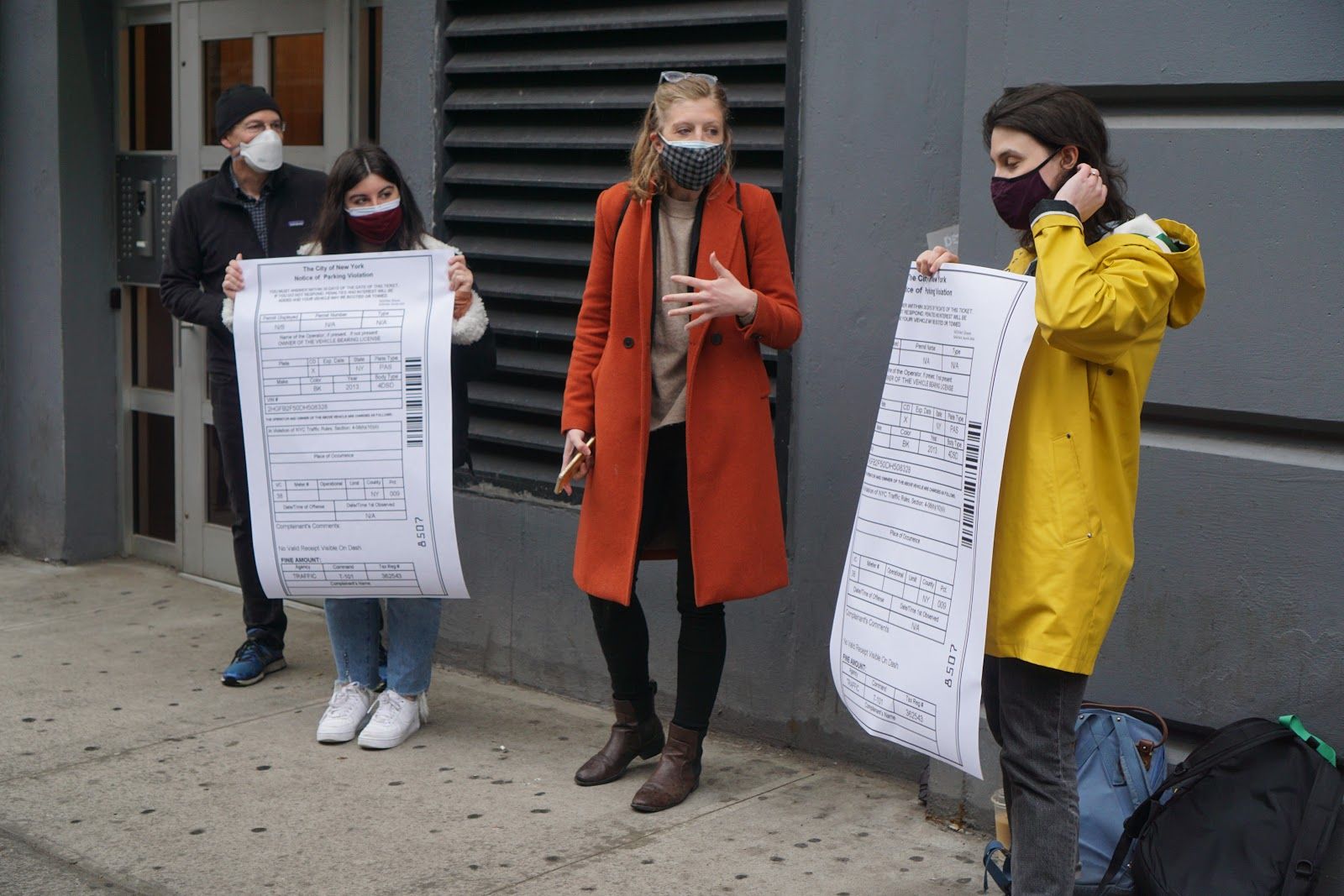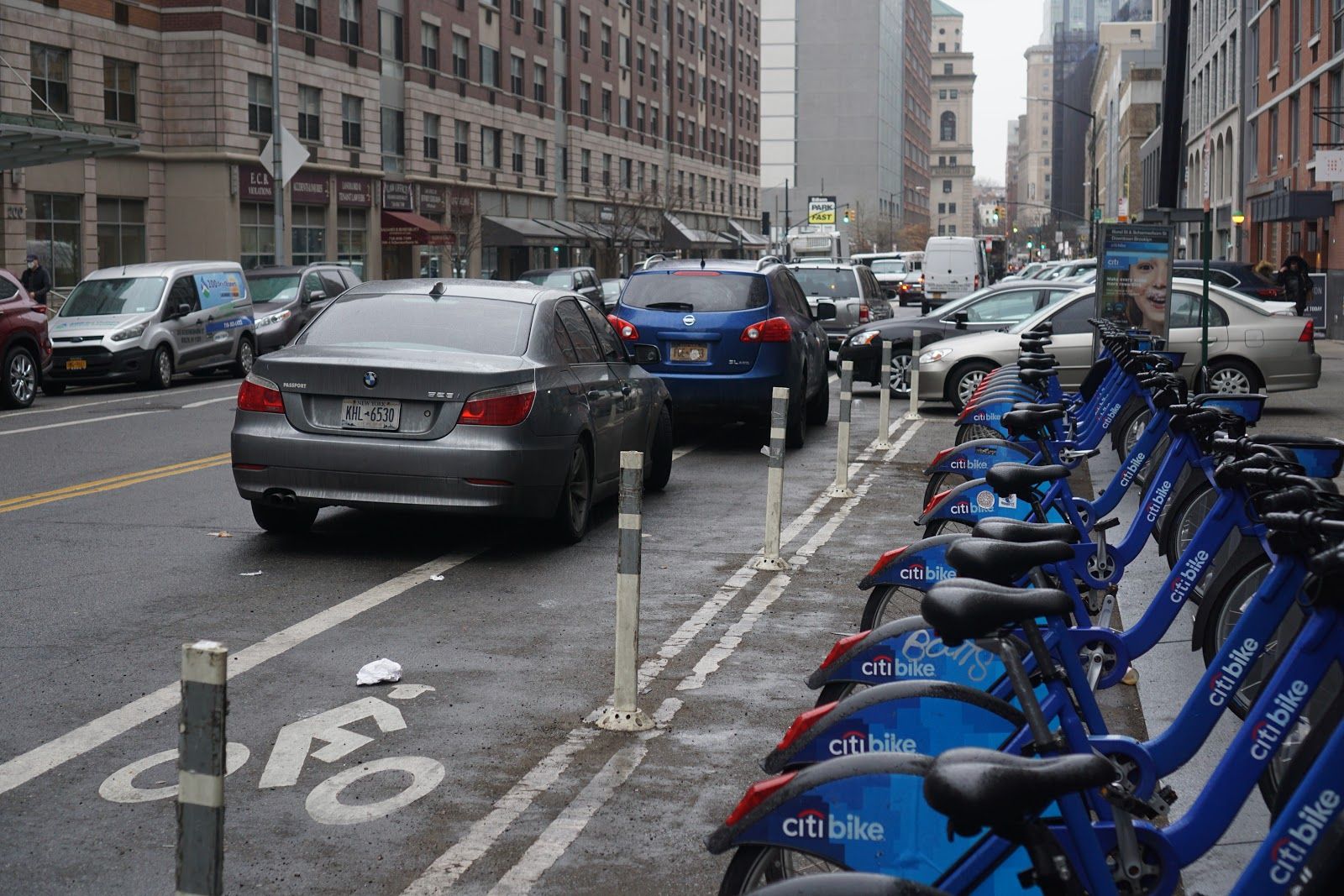Council Candidate Pushes To End Illegal Parking By Letting Citizens Reporting Violations Get a Cut of Revenue Generated


Elizabeth Adams stood near a vehicle-blocked Downtown Brooklyn bike lane with transit advocates and cartoonishly large traffic violation notices on Thursday morning to call for an end to “parking abuse.”
Adams, who is running to replace her boss, term-limited Council Member Stephen Levin, in the 33rd Council District, had come to the corner of Bond and Schermerhorn Streets to announce her plan to address “ongoing parking violations that have happened for too long with no accountability and no response.”
And those giant parking violation notices? They were for the city’s own police and transportation departments.
“What we need to do is turn to people who know what’s happening in their community, and can bring accountability themselves,” she said.
To do that, Adams called on the City Council to pass Levin-sponsored Intro. 2159, a bill she helped draft as Levin’s legislative director. The bill would allow any New Yorker to report illegally parked vehicles to the city, and in turn receive 25% of any proceeds collected from enforcement.
The legislation, which has the support of Council Speaker Corey Johnson, is in part designed to address the ongoing scourge of placard abuse, in which city-issued parking passes are used to park illegally and unsafely.

A similar city law already permits residents to report idling cars and trucks, and has the backing of rock legend Billy Idol.
Levin has for years expressed frustration about—and, critics say, done relatively little to solve—the constant blocking of the Schermerhorn Street bike lane, particularly by cop cars used by NYPD Transit Bureau 30. Transit advocates who joined Adams at the press event Thursday said the bike lane was just one example of a chronic problem.
“It tells New Yorkers that their safety is less important than police officers’ convenience,” said Rachel Thompson, a volunteer organizer with the group Transportation Alternatives.

Jon Orcutt, executive director of the group Bike NYC, agreed.
“The city administration just does not care,” he said. “What you’re seeing here in the bike lane is chronic. It’s also like a molecule in the tip of an iceberg.”
DOT has pushed back on the bill, saying it would lead to uneven enforcement, logistical headaches, and even physical confrontations between violators and those who report them. But Adams insisted the time had come to fix the problem indefinitely.
“They said that they were worried about equity of enforcement,” Adams said of DOT. “To me, that’s an opportunity for them to make sure that they are assisting with this program in enforcement, and ensuring that all communities have access to resources to call and report violations.”
Adams also laid out her own plan for streetscape improvements for which she would push, should she be elected to the north Brooklyn Council seat.
Those proposals include implementing a carshare program for city-owned vehicles, and giving city employees free or discounted Citibike memberships and Metrocards; requiring city employees to provide a “proof of necessity” before receiving a parking placard; shifting enforcement away from NYPD to a new DOT parking abuse enforcement unit; and creating more bike and pedestrian space, in part by implementing the Downtown Brooklyn Partnership’s Public Realm Vision Plan.
“It is time to invest in protected bike lanes that move beyond just green paint to actually create meaningful safety protections and convert our space away from car lanes,” she said.
Adams also suggested the city could raise revenue by cutting down on free parking in commercial corridors, dedicating meter funds to bike lane creation, and requiring a bike lane study any time a road is repaved, “so that we’re doing the work all at the same time, rather than doing independent studies over and over again.”
“This is about more than just addressing our parking space,” she concluded. “It’s also about the culture shift that we need so that we prioritize bike lanes, that we prioritize bicyclists, and people and pedestrians who use our space too. This about equity for our public space.”




